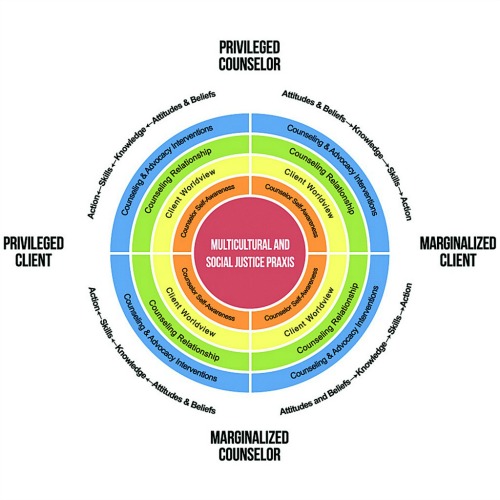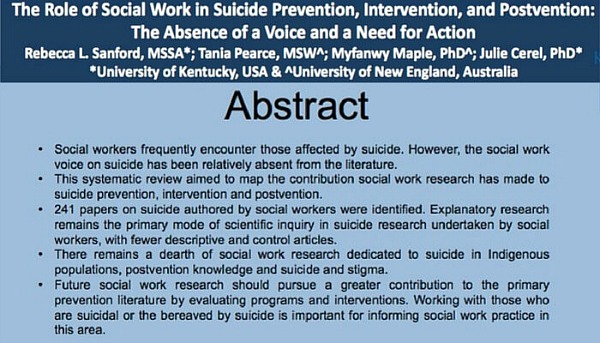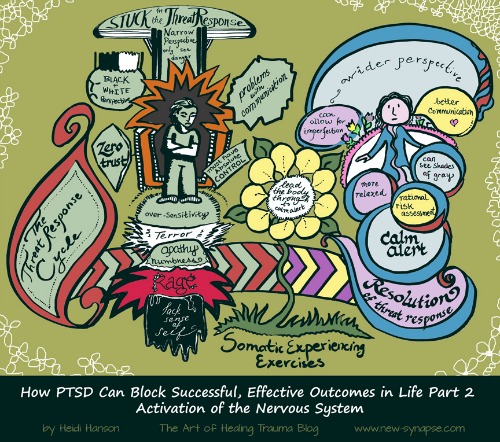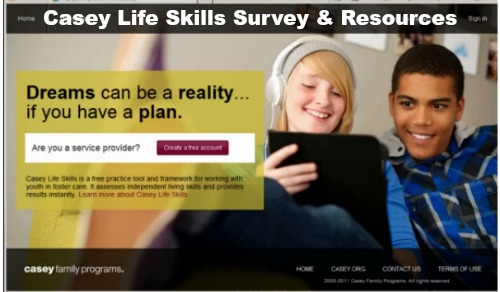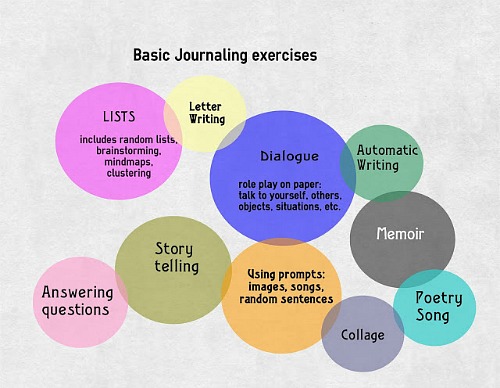 Mental Health Roundup
Mental Health Roundup
This contains some of the latest news in social work, healthcare, private practice and more!
This week’s wrap-up has 5 main themes:
- Healthcare/Advocacy
- Cultural Sensitivity
- Technology
- Therapy/Relationships
- Career/Private Practice/NonProfit
As a reminder, NASW’s Virtual Career Fair is coming up on Feb 9, 2016! [Need online job fair tips? See this post!]
Healthcare/Advocacy
- Affordable. Health. Care – Jean Raffa raises questions about how affordable healthcare is under the ACA as she describes one situation in which essentially a man and his wife’s health insurance costs have doubled since the Affordable Care Act went into effect and the toll this is taking on them.
- Are Internet interventions cost-effective for mental health? – as per Christopher Sampson’s review, internet interventions do not offer impressive benefits in terms of quality-adjusted life years; however, for anxiety, internet based interventions have the potential to be cost-saving.
- Dept of Health and Human Services Plan to Invest 157M into Social Work – as per Dr. Charles Lewis, Jr., the plan is to provide training to social workers so as to meet the integrative healthcare models spurred by the Affordable Care Act (and the need for improved overall health).
- The Patient-Centered Health Record – Peter Elias describes a model in which the basic unit is a one-patient record unique to the individual patient; the unit and information are owned and controlled by the patient; patient invites their clinicians (or others) to see and use the information.
- #Pinktax and #Genderpricing: Gender in the Checkout Aisle – to combat the “pink tax,” or price mark-up that is added to products designed for women, Jonathan Wynn suggests, buying whenever possible the equivalent products that were made for men.
- Time for a Patient-Driven Health Information Economy? – Kenneth D. Mandl & Isaac S. Kohane’s recommendations include the Centers for Medicare and Medicaid Services and private insurers offering strong incentives for health care organizations to provide data to patients after encounters through a standardized electronic mechanism.
- What Can Communities Do Now for Health Equity? – Joe Marx shares examples of communities in action with suggestions such as getting creative about engaging and leveraging partners for health, starting a conversation on race and health, followed by action and more.
- Why Small Debts Matter So Much To Black Lives – Paul Kiel describes the wide gap that exists between the financial resources of white and black families, even when examining families with similar income. Changing a few practices could make it easier to recover from from small setbacks.
- You eat what you are? Changing identity to motivate healthy eating – Science Daily – imagining yourself as a healthy eater may be the key to changing your (or your client’s) behavior for the better.
Cultural Sensitivity
- Children Born of Rape Face a Painful Legacy – as Robert T. Muller explains, maternal capacity to care for the child is often impaired; children conceived of rape are thus more likely to develop poor parent-child relationships and suffer psychological disorders.
- Documentary Movie Night 1/28/16 – Growing up Trans – a link to the movie that shows you what it is like for children in the US to transition genders from the individual and family perspectives + a copy of the twitter chat discussing policy, research & other macro-level issues.
- GoodTherapy.org Adopts ‘They’ as Singular Pronoun – in welcome acceptance of those who do not identify as male or female or with any particular gender, “they” and “theirs” will replace “she or he” and “his or hers” in those places where a singular pronoun is appropriate for use and the gender of the person in question is not specified.
- Multicultural and Social Justice Counseling Competencies: Practical applications – Ratts, M.J. et al. illustrate how you may apply multiculturalism and social justice competencies in [micro] counseling, as well as at the mezzo and macro levels. The key to success is self-awareness for identifying your cultural values, beliefs and biases, as well as those of your clients.
- NASW updates cultural competence standards – as per Paul R. Pace, NASW’s updates include broadening the concept of ‘culture’ beyond race and ethnicity, employing ‘cultural humility,’ as a guiding stance vis-a-vis cultural differences and ‘intersectionality’ for understanding the experiences of those at the margins.
Technology
- Creating Curriculum on Digital Student Leadership – Josie Ahlqvist describes the curriculum she has developed to foster digital literacy and leadership.
- Educational Outcomes for Live Tweeting with Students – Laurel Hitchcock shares a copy of a journal article that she and Jimmy Young co-authored, illustrating how teaching via twitter enhanced students’ learning and enabled them to see how twitter could enhance their professional learning network.
- How Does That Make You Feel, Dave? – PsychTech podcast discussing how attempts to read and translates our emotions via technology such as facial recognition, eye tracking, body language, tone of voice, and speech patterns.
- Mind Mapping in Clinical Social Work Practice – Ignacio demonstrates the creative use of a mind mapping app with some [dummy] case notes/treatment plan.
- NHS Transformathon – was a free online, global event in which participants talked about how patient leadership, co-production, social media and human centred design are directly improving outcomes for patients, as well as how crowd sourcing, making films and using social media are improving health and care services. Resources are available on site.
- Wanted: A quantified child app for helping special needs kids – Alexandra Samuel is making an appeal for a useful app (that could benefit many others).
Therapy/Relationships
- Are There Enough Social Workers Doing Suicide Prevention Research? – Sean Erreger shares the poster Rebecca Sanford et al. presented at the Society for Social Work and Research conference and calls for social workers to participate in research on suicide prevention.
- Assessing Through a Kaleidoscope (Part 1) & Part 2 – to treat clients effectively, Danna Bodenheimer recommends [carefully] asking about their: past experiences with social workers, birth story, history of name, relationship with food, alcohol and/or drugs, feelings about educational history and more.
- Avoidance and Agoraphobia Come from Fear, Not Failure – Tanya J. Peterson explains what
- But I don’t want to ask if I’m hungry – to help you (or your client) be more mindful re eating, Maria Rippo suggests giving yourself permission to eat and say: “I’m just going to pause for a moment to get curious about… what I am thinking and feeling before I eat.”
- Critiques of the DSM-5– Jonathan Singer interviews Jeffrey Lacasse, Ph.D. about his key critiques of DSM 5 and the implications for social work practice.
- Emerging Adulthood – Stephen Borgman shares 10 online resources plus a skills assessment that you may use to guide a client (or client’s child) with autism/aspergers transition to adulthood.
- How PTSD Can Block Successful, Effective Outcomes in Life – Part 2 & Part 3 – Heidi Hanson describes how her PTSD experience interfered with her obtaining dental treatment. In addition to bringing the symptoms to life, her story and illustrations educate and inform.
- The New “Homework” in Cognitive Behavior Therapy – Judith S. Beck, Ph.D. & Francine R. Broder, Psy.D. illustrate the use of an “action plan” (replacing the former homework term), an assignment you create together to help your client make small changes in between sessions.
- The second brain – All in the Mind podcast interview with David Perlmutter and James Greenblatt about how our gut impacts physical, mental and brain health, the link between our brain and the balance of bacteria in our gut, and the potential for probiotics as treatment.
- Setting Healthy Expectations for Siblings – to create supportive sibling relationships, Mercedes Samudio, LCSW’s recommendations include acknowledging each child’s separate identity, avoiding refereeing conflicts among siblings and acceptance of relationship ups and downs.
- Waking Up in Prison – Tami Simon’s interview of Fleet Maull who has founded several prisoner advocacy organizations. They discuss practices for dealing with regret, Buddhist views of basic human goodness and how they helped Fleet to come to terms with his prison experience.
- What Hookup Culture Means For The Future Of Millennial Love – as per Alexandra Solomon, a hookup is typically brief and is intended to be purely physical in nature. Many young adults would prefer to date and develop a relationship of trust prior to having a sexual relationship, but the hookup culture continues to thrive.
- Wounded Bonds: Gay, Lesbian, and Bisexual (GLB) Military Service Members and Veterans – Dr. Michael Pelts and Dr. David Albright [InSocialWork podcast] discuss the training needed by social workers to competently serve GLB service members and veterans.
Career/Private Practice/NonProfit
- 11 Must-Know Stats About How NGOs Worldwide Use Internet Technology – a few of the stats that Heather Mansfield shares: 92% of NGOs worldwide have a website; 70% use the .ORG domain; 95% have a Facebook Page and 83% have a Twitter Profile.
- Create an Amazing About Page and Discovering your Voice – Both Melvin Varghese and Joe Sanok interviewed Nicole Bonsol about the process of creating your about page/website. It is advised to make it skimmable and begin with the reader’s experience (not you). She has a free “about page” mini-writing course.
- Create Your Personal SWOT Analysis – Some of the steps Relando Thompkins-Jones, MSW, LLMSW recommends include looking at your Strengths: What is going well?; Weaknesses/areas for improvement: What are you afraid of, and why? What areas do you need to improve on?…
- Fee Setting Secrets for Therapists – Miranda Palmer stresses the importance of drawing up a business plan to come up with your fee(s), regardless of what it looks like area therapists are charging (you don’t know their financial situation and cannot truly compare).
- How can an experienced therapist charge higher fees without scaring clients away? – Juliet and Clinton answer this question, and suggest that you create 2 windows on the homepage leading to more in-depth copy, when targeting 2 different niches.
- How To Create a Culture Manifesto for Your Organization (And Why It’s a Good Idea) – Mollie West illustrates the powerful effects of creating a culture manifesto and gives you the questions to raise with your core team to facilitate drafting your organization’s manifesto.
- How to Manage the Growing Pains of Becoming an Expert – Nicole Clark suggests trusting yourself and attending conferences instead of comparing yourself to others, or expecting yourself to know everything there is to know about your field, and “ready, fire, aim.”
- Pick My Business Brain, Website Review – Counselor Entrepreneur provides guidance on how a particular therapist may improve her website design with the goal of moving from a solo practice to a group one.
Self Care
- Getting more out of your journaling practice – Dima Dupéré describes some of the techniques she presents to clients to help them with further reflection after they write.
- How to Get (& Stay) Motivated! – Dr. Christina Hibbert talks about motivation and self-determination theory and offers a few reflection questions in order to gauge what your (or your client’s) natural dispositional tendency is vis a vis goal achievement.
Like this post? Please share it!
